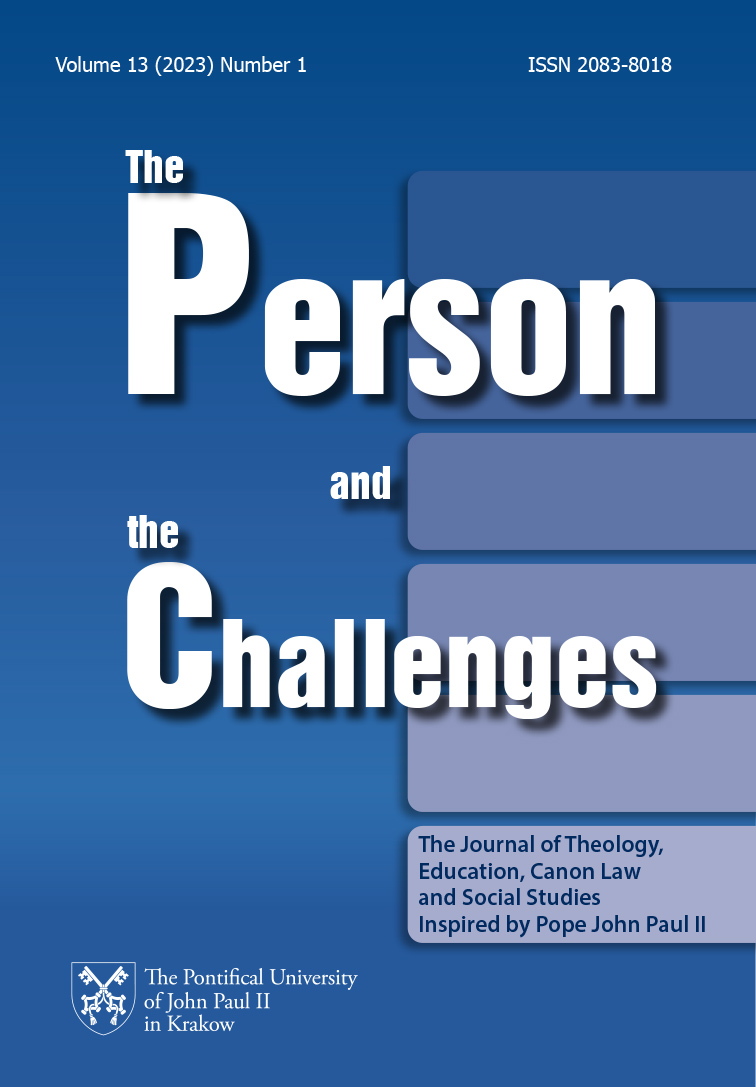The Relationship Between Pagan Fate and Christian Grace in the Thought of Józef Tischner
DOI:
https://doi.org/10.15633/pch.13114Słowa kluczowe:
Fate, grace, freedom, paganism, Christianity, TischnerAbstrakt
This article examines one of the greatest contributions of Józef Tischner to the area of anthropology and charitology by analyzing, in a systematical way, his original thought regarding the relationship between the pagan concept of fate (fatum) and the Christian concept of grace (charis). The originality of this contribution concerns three main areas. The first one concerns the historical-charitological aspect in which Tischner proposes a new approach which helps him to emphasize the personalistic aspect of grace. Instead of considering the problem form a typical intra-Christian perspective, he approaches the concept of grace by confronting it with the historical, pagan concept of impersonal fate. Secondly, he brings to the light an ancient Greek idea of the aesthetic overcoming of the tragic defeat caused by fate, and by showing its insufficiency, he discovers and demonstrates the depth, beauty and hidden ultimate power of the aesthetic dimension of Christian grace. Finally, he argues that the problem of the relationship between fate and grace is not an issue of the ancient past, but constitutes the core of one of the greatest contemporary challenges faced by modern Christian society: the ever growing wave of neopaganism.
Bibliografia
Catechism of the Catholic Church: Popular and Definitive Edition, London–New York 2004, Burns & Oates.
Keener F.M. (ed.), Virgil’s Aeneid. Translated by John Dryden, Harmondsworth 1997, Penguin.
Miłosz Cz., Tischner J., [voice in the discussion:] Dziedzictwo diabła. Spotkanie Czesława Miłosza i ks. Józefa Tischnera, „Znak” 458 (1993) 7, pp. 125–132.
Sondel J., Słownik Łacińsko-Polski dla prawników i historyków, Kraków 2006, Universitas.
Tischner J., Filozofia dramatu, Kraków 2012, Znak.
Tischner J., Łaska i wolność: czyli spór o podstawy liberalizmu, „Znak” 444, (1992) 5, pp. 4–26.
Tischner J., Nadzieja czeka na słowo, Kraków 2011, Znak.
Tischner J., Nieszczęsny dar wolności, Kraków 1996, Znak.
Tischner J., Podglądanie Pana Boga, „Znak” 511 (1997) 12, pp. 8–24.
Tischner J., Przekonać Pana Boga, Kraków 2010, Znak.
Trombik K. Wolność a łaska. Interpretacja problemu w filozofii Józefa Tischnera, „Analecta Cracoviensia” 50 (2018), pp. 173–190.
Wołowski L., Łaska i wolność u Hansa Ursa von Balthasara i Józefa Tischnera, Kraków 2019, WAM.
Pobrania
Opublikowane
Numer
Dział
Licencja

Utwór dostępny jest na licencji Creative Commons Uznanie autorstwa 4.0 Międzynarodowe.
Autorzy publikujący w czasopiśmie udzielają jego wydawcy zgody o następującej treści:
- Autor zachowuje autorskie prawa majątkowe do utworu, a jednocześnie udziela wydawcy czasopisma zgody na jego pierwszą publikację w wersji drukowanej i wersji online na licencji Creative Commons Uznanie autorstwa 4.0 Międzynarodowe oraz zgody na wykonywanie opracowań, w tym przekładów.
- Autor ma możliwość udzielania zgody niewyłącznej na opublikowanie utworu w wersji, która ukazała się w czasopiśmie (np. zamieszczenia go w repozytorium instytucjonalnym lub opublikowania w książce), wraz z informacją o jego pierwszej publikacji w czasopiśmie.
- Autor może umieścić swój utwór online (np. w repozytorium instytucjonalnym lub na swojej stronie internetowej) jeszcze przed zgłoszeniem utworu do czasopisma.

